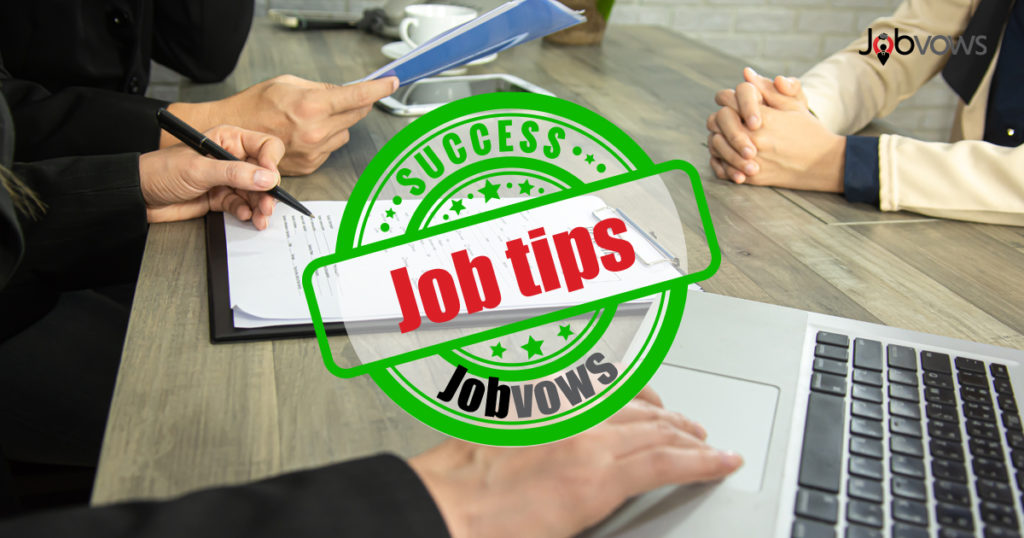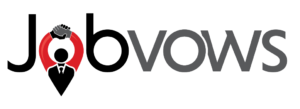Tips for A Successful Job Interview: Are you a fresher or a candidate with successive work experience? If so, do you still feel desperate or tensed during job interviews? In fact, many people do face the same circumstances. The more concerned you are about the interview and the preparation, the more exposure to stress will be the reaction. Appearing for an interview for the first time ever in life still adds more stress to you
Some of the most significant stages in your life in particular would be in searching for a right job. Such opportunities are mainly about presenting yourself as the amazing candidate to the concerned hiring officials. To assist you on how to prepare and give your best, we have organised certain tips that will help you prepare and appear confidentially for any job interviews.
- Guiding yourself with better practices helps to build your Confidence
- Comfort to answer questions in the interview
- To do well in the interview
- Ability to recognize the practical effects of the interview tips
Here are a few pre-interview tips to help you tackle through the tough questions in an easy flow manner,
Read the Job Notifications briefly
When you come across a job advertisement that best suits your qualifications and experience, ensure to read the descriptions of the job such as,
- Job responsibilities
- Skills
- Tasks and duties

Spend time to research about the Company and its Profile
The internet has it all. One of the best ways to educate yourself with the Company profile would be through the social media platforms such as the,
- Google Reviews
- Company Website
This will help you to prepare on
- The recent developments of the company
- The present state and its expansion
- Hierarchy of the Executives
- Major competitors or organisations within the same industry
- Current and Upcoming Projects
ANSWERS FOR THE QUESTIONS
This is the stage where you will be assessed by the HR through a certain set of personal and professional questions to screen your capability on,
- Beginning with a unique quality or skill
- Explaining on how you applied your skill-set
- Benefits gained by the company
So here’s a list of common interview questions and what they actually convey from the HR to the candidate,
TELL ME ABOUT YOURSELF – This is the first and foremost question asked by an HR in any company. From here on, you are assessed on your soft-skills in real life situations and on a professional level. Likewise, they observe the following in you,
- Maintaining Eye Contact
- Communication
- Rapport building
The other ways of this question being asked by any HR would be,
- Please introduce yourself
- Give me a quick brief of your profile
- Quickly take me through your profile!!!
APPLYING FOR THE POSITION – When the HR asks you “Why are you applying for this job?” it conveys “what prompted you to apply?”
This question can be asked in another way also,
“Why do you want this job?”
The answers to this question will enable an HR to know about your true intentions in participating for the interview such as,
- Your interest to join the particular company rather than the other firms
- Interesting aspects towards the kind of job that you are pursuing
- On how you can contribute your effort in achieving the goals of the company
- Knowledge about the company, main competitors and the industry
- Individual career goals that are best suitable for the job profile
WHY DID YOU LEAVE FROM YOUR PREVIOUS JOB – An ultimate question where every job applicant will have to answer in any interview. There is no choice to remain silent from this. The true intention behind this question is to find out,
- Your sense of responsibility towards work
- Whether you assert value to your work
- The exit from your previous job was on good terms rather than getting terminated
- Talking the truth to them
- Screening for good qualities and progress you made in your career
- Explaining your positive and challenging experiences and what you learned from such moments
- The productivity you contributed as an employee to previous company
- Your work-life balance
- In sharing your similar and unique skill-set
WEAKNESS AND STRENGTH – Every job applicant has a set of special positive and weak aspects. Both can be explained in a diplomatic manner rather than talking very blunt and sharp.
Several Human Resource officials put forth the question as,
- Explain your strengths and weakness
- What are strengths and weakness?
Here the HR is going to find out how you are going to give your answers and not at what you are going to answer. The secret to this is,
SELF-AWARENESS – Every applicant will have a weakness along with their strength. This weakness should not interfere or overlap the job duties and responsibilities in the interview.
HONESTY – The renowned English Proverb “HONESTY IS THE BEST POLICY” has its after-effects till today. Likewise it’s not good to give dishonest answers on your weakness in any interview. On a good note, it is good to talk about the steps you are taking to balance your weakness. This gives a good impression of your individual responsibility to improve in your career.
SELF-IMPROVEMENT – Showing an important part of you to learn new skills as well as correcting your weakness is a good sign of an ideal applicant. You are improving yourself.
The common strength qualities are
- Time-Management
- Teamwork
- Multitasking
- Organization skills
- Attention to detail
- Accuracy and speed at work
- Ability to work under pressure
Whereas for the weakness, it may be
- Patience
- Shyness
- Humour
- Over talking
- Speaking so honestly
- Public speaking
One of the best ways to talk about your weakness is to,
- Talk honestly about your weakness
- The ways you have taken to correct it
Furthermore, the most important part of your answer while explaining weakness is the steps that you have taken to overcome it.
There can be questions like, “When was the toughest or challenging part of your previous or current job?”
A simple method will help you to answer this question and that is – The STAR method, where
S – Situation – This is where you begin to talk about a situation where your skills, time and patience were required to solve a particular problem.
T – Task – Explain the action or tasks that your job requires to do in such a circumstance
A – Action – Here, you have to explain the action you took to solve the problem. If the action you took was different from the ordinary one, go on to explain why you chose such an action.
R-Result – What was the end result? How did your action produce the result? Did it produce the required result? You can explain how your action made the difference using numbers and metrics. This too can reinforce the impact of your action.
You can also practice this method at home by playing mock interview sessions. Never shy away to ask for help from friends or family members to spent some time for practicing such sessions. In fact, Google and other social media platforms help you to access several videos of mock interview sessions and blogs in many languages to guide you.
DRESS TO IMPRESS
First impression begins with your personality and way you present yourself. While you present yourself to the hiring panel, the first quick glimpse will be at your dress and the outfits.
Here are some quick common tips for Men,
- Never forget to iron your clothes
- Do not use too much perfume
- Make sure to polish your shoes
- Trim the fingernails
For Women, the quick tips would be
- Not to wear high heels
- Avoid excess make-up, perfume and jewellery
It is advised to wear a formal outfit with basic and minimum colour tones rather than bright and casual ones.
OFFER OF SALARY
Every job has a pay. The applicants indeed expect a good salary. Likewise, his or her previous work experience counts as a support for negotiation too. Moreover, if you do possess a few years of practical experience of the relevant skills similar to the new job requirements, then you can make it to the list of shortlisted candidates.
Here are a few tips to keep in mind before you negotiate for a good salary,
- Look into other sources regarding the pay scale of the similar job designation. You can browse into social media to know more about the details of the salary. Similarly, do a research on pay scales offered by different firms for the similar kind of job
- Benefits such as incentives, perks and bonuses add an additional monetary value and compensation. Some of them are Medical coverage, Insurance, Gratuity etc. You are advised to discuss these details with the HR once you are confirmed for the job offer
- Fresher candidates will have to accept offer of the minimum pay scale as they don’t posses any prior experience of work. Whereas, candidates with good work experience will definitely discuss for a good salary package. This forms the backbone for negotiation from the candidate’s point of view
- Discussion with your Friends or family members and other colleagues regarding salary negotiations, pay scale and the best offer in the industry definitely gives you the edge of an appropriate target to negotiate. This includes your prestigious years of work experience.
- Never start too early in your interview to discuss regarding the pay scale or your salary expectations
- You can ask for 24 hrs time to consider about the salary offer made to you by the HR. This helps you to assess your options and the further steps to take in a great way
- Please do not say “Sorry” to the HR, if your salary expectations were not met. This gives a hint to them that you are willing to accept an offer less than from what you have in mind.
The different forms of the question regarding salary expectations are,
- “What are your salary expectations?”
- “How much you are expecting?”
- “What is your expected CTC?”
(CTC means your cost to company as an employee, in other words your expected salary)
- “How much salary are you expecting?”
- “Do you have any salary expectations?”
THE FINAL CHECK TIPS
Following are the tips to keep in mind and apply during the interview,
- Keep your cell phone switched off (not to be put in vibration mode)
- Do not talk too much at the interview
- Ask questions to the HR. This shows your degree of interest, enthusiasm and how much you are prepared for the job
- Do not talk about your previous company in a negative manner
- Carry a blue or black ink pen
- It is advised to keep in handy at least five copies of your resume and sufficient copies of your passport size photo.
- Try to reach at least 15 minutes before the interview schedule time. Please inform the concerned officials if you would reach late for the interview.
- Allow the HR to talk about the salary and then proceed for negotiations. Never talk about the salary during the beginning of your interview.
- A good research about the company will help you gather some information for whom and what you are going to work for.
THE DIFFERENT TYPES OF JOB INTERVIEWS
Interviews are conducted as a face to face sessions between an HR and a job applicant. This is a world- wide fact. With the advent of the Internet and social media platform, job interviews take place in an easy diversified process such as,
- Skype Call or Phone Interview – In this type of interview, the candidate will have to talk with the HR over the phone similar to the professional face to face conversation. Therefore, it is better to be in a quiet and peaceful place to hear and talk properly. Always keep a pen and paper handy by your side.
- Aptitude Tests to Prove Competency – There are firms that assess candidates initially in their strength and weakness through competency tests. Communication, Quantitative Aptitude and Analysis, Article Writing, Essay Writing and etc are some of them. This is a test on their quality and skills of responsibility, team-work, problem-solving and leadership.
- Panel Interview – Candidate will be interviewed by more than one official at the same time. So, this requires communication and rapport building with the panel. Likewise, they can put forward multiple questions too. To help build your confidence, breathe and speak slowly. . Assessment Interview – The process involves group exercises, presentations, psychometric and skill tests, and interview. Candidates will also be screened on their soft skills, communication as well. Through these techniques, they are exposed to the very environment of work culture, discipline, office ethics, goals, teamwork, scheduling and planning
You may also like to apply,



